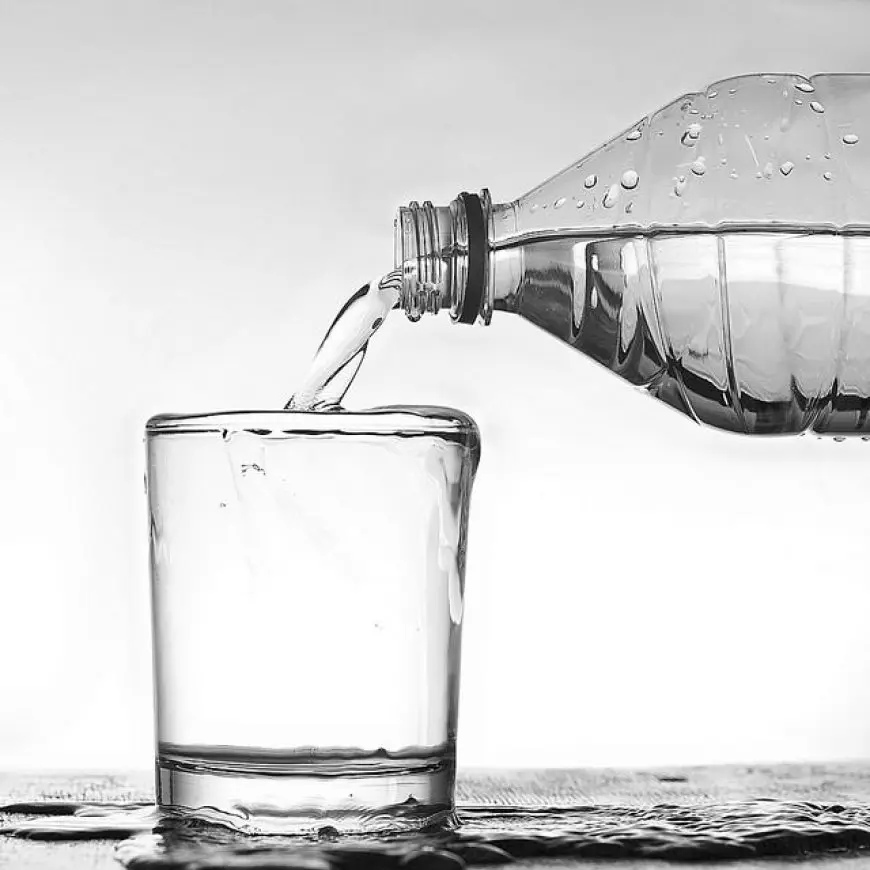The Science of Hydration: How Much Water Should You Drink?
The Science of Hydration: How Much Water Should You Drink?

Water is essential for life. It is the most important substance for human health, as it makes up around 60% of the body’s weight and plays a key role in nearly all bodily functions. From regulating body temperature to helping with digestion and nutrient absorption, staying hydrated is crucial for overall health and well-being. But how much water should we really be drinking each day? Let’s explore the science of hydration and the factors that influence your body’s water needs.
Why Hydration Matters
Water is involved in numerous processes in the body. It helps to transport nutrients, remove waste, regulate temperature, lubricate joints, and protect organs and tissues. Proper hydration also supports cognitive function, emotional well-being, and physical performance. Even mild dehydration can impair mental clarity, reduce energy levels, and affect mood.
How Much Water Should You Drink?
The common recommendation of drinking eight 8-ounce glasses of water a day, often referred to as the “8x8 rule,” is a popular guideline. However, this is a generalization, and individual water needs vary based on several factors.
The National Academies of Sciences, Engineering, and Medicine recommends a more personalized approach. According to their guidelines, men need about 3.7 liters (125 ounces) of total water intake per day, while women need about 2.7 liters (91 ounces) of total water intake per day. This includes all fluids consumed, including water, beverages, and moisture in food.
However, these recommendations are just a baseline, and individual hydration needs can vary depending on lifestyle, health conditions, and environment.
Factors Affecting Hydration Needs
Several factors can influence how much water your body requires. Understanding these factors can help you stay adequately hydrated:
-
Activity Level
People who exercise or engage in intense physical activity require more water to replace the fluids lost through sweat. The more active you are, the more water you’ll need to drink to stay hydrated. -
Climate and Weather
Hot and humid weather increases your body’s need for water as you sweat more to regulate body temperature. Similarly, living at high altitudes can lead to dehydration, as the air is drier, and you may lose more moisture through breathing. -
Health Conditions
Certain health conditions can increase your need for water. Fever, vomiting, diarrhea, and infections can cause dehydration. Additionally, chronic conditions like diabetes or kidney disease may require adjustments to your hydration levels. Always consult with a healthcare provider if you have specific health concerns. -
Pregnancy and Breastfeeding
Pregnant and breastfeeding women need more water to support the increased fluid volume in their bodies and the production of breast milk. The general recommendation is to drink additional water to stay hydrated during pregnancy and lactation.
Signs of Dehydration
Dehydration can have a significant impact on your health. Symptoms of dehydration range from mild to severe and may include:
- Thirst
- Dry mouth
- Fatigue
- Dizziness
- Headache
- Dark yellow urine
- Reduced urine output
In severe cases, dehydration can lead to heat stroke, kidney failure, and even death. It's important to listen to your body and take action when you feel thirsty or notice any signs of dehydration.
How to Stay Hydrated
Staying hydrated is easier than it may seem. Here are some tips for ensuring you're getting enough water each day:
-
Drink Water Regularly
Carry a water bottle with you throughout the day and take small sips regularly, rather than waiting until you're thirsty. Thirst is often a sign that you're already somewhat dehydrated. -
Monitor Urine Color
A simple way to track your hydration level is to monitor the color of your urine. Ideally, your urine should be pale yellow. Dark urine may indicate that you need more fluids. -
Eat Hydrating Foods
In addition to drinking water, consuming foods with high water content can also help keep you hydrated. Fruits and vegetables like cucumbers, watermelon, oranges, and strawberries have high water content and can contribute to your hydration needs. -
Adjust for Activity
If you’re engaging in physical activity, make sure to hydrate before, during, and after your workout. Drink water or electrolyte beverages to replenish what is lost through sweat. -
Avoid Dehydrating Drinks
Certain beverages like alcohol and caffeinated drinks can cause dehydration. While it's fine to consume them in moderation, be mindful of their diuretic effects and make sure you're also drinking water to compensate for any fluid loss.
The amount of water you need to drink each day depends on a variety of factors, including your activity level, the climate you live in, and your overall health. While the 8x8 rule is a helpful guideline, it's important to listen to your body and drink according to your individual needs. Staying hydrated is essential for maintaining optimal health and well-being, so make it a priority to drink enough water and monitor your hydration levels throughout the day.







